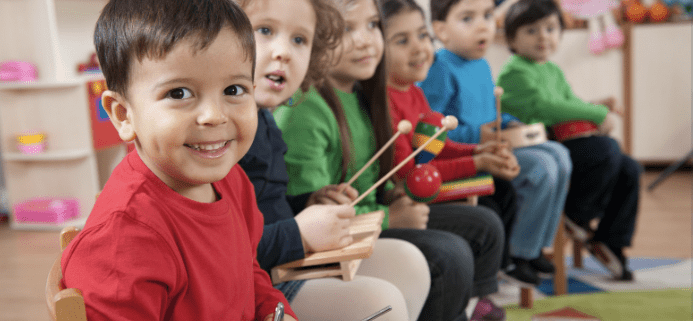Preschool is a critical time for children’s social-emotional development as they learn to navigate their emotions, interact with others, and build relationships. While it may be easy to overlook the importance of these skills in early childhood, research shows that strong social-emotional skills in preschool can have a positive impact on academic performance and overall well-being later in life.
Children with strong social-emotional skills in preschool are more likely to develop positive relationships, both within the classroom and outside of it. These skills also help children develop resilience and self-confidence that can be beneficial in all aspects of life.
How Preschool Helps Instill Social and Emotional Skills
Preschool is a critical stage in a child’s development, where they are introduced to a structured environment that fosters social and emotional growth. It provides children with a platform to learn how to interact with others. It is an environment where children learn to share, take turns, and cooperate with others. These skills are crucial for building positive relationships and are fundamental in developing social skills.
Preschool also teaches children how to solve problems and make decisions. Children learn how to think critically, analyze situations, and make sound decisions. This skill is essential in developing emotional intelligence, where children learn how to understand themselves and others better. Emotional intelligence helps them navigate social situations and make meaningful connections with others.
Furthermore, preschool helps children build confidence and self-esteem. Through play and exploration, they learn to trust their abilities and develop a sense of pride in their accomplishments. This helps to build resilience, which is a crucial aspect of emotional development.
Social-Emotional Skills That Kids Develop in Preschool
Preschool teachers help children learn essential social and emotional skills such as self-awareness, empathy, and problem-solving. Self-awareness helps children understand their feelings, motivations, and behaviors in order to make better decisions. Empathy leads to understanding the perspective of others, while problem-solving teaches kids how to handle interpersonal conflicts.
Kids also learn important lessons about self-regulation through activities like story time or group projects. Self-regulation helps kids control their impulses and regulate their behavior in different situations. Teaching children these techniques early on will help them handle difficult situations later on in life with more confidence.
Preschool also encourages healthy relationships between peers and teaches valuable life lessons about cooperation, respect for others’ opinions, and communication skills. Kids are given the opportunity to work together with other children when building blocks or doing art projects which foster collaboration and creative problem-solving. These activities not only teach valuable skills but also give young learners a sense of pride when completing a task together.
Children also learn how to listen and pay attention in preschool. They practice paying attention to instructions, following directions, and retaining information. These skills are important for learning new things and staying focused on tasks:
- Self-awareness
- Empathy
- Problem-solving
- Self-regulation
- Cooperation
- Respect for others’ opinions
- Communication skills
- Collaboration
- Creative problem-solving
- Listening and paying attention
Cadence Education Can Help Build Social and Emotional Skills
At Cadence Education, we believe that developing strong social and emotional skills in preschool is essential for children to grow into responsible, confident individuals. We provide a nurturing environment where kids can learn how to interact with others, problem-solve, and develop self-confidence.
Our curriculum is designed to not only build academic intelligence but also foster emotional intelligence. We provide age-appropriate activities that help children learn important social and emotional skills such as self-awareness, empathy, problem-solving, and self-regulation.
We also encourage healthy relationships between peers by providing opportunities for collaboration and communication. Through activities like art projects or story time, children are able to practice group work and appreciation for others’ opinions.
Our goal is to support children as they develop these skills so that they can become capable and confident individuals who are equipped with the necessary tools for success. With our guidance, children will be better able to achieve their goals and dreams. Through positive reinforcement and encouragement, we help kids build the social-emotional skills they need to succeed.
Find a Cadence Education school near you to see how we can help your child build the skills they need to be successful. We are happy to answer any questions you may have about our programs. Contact us today!

